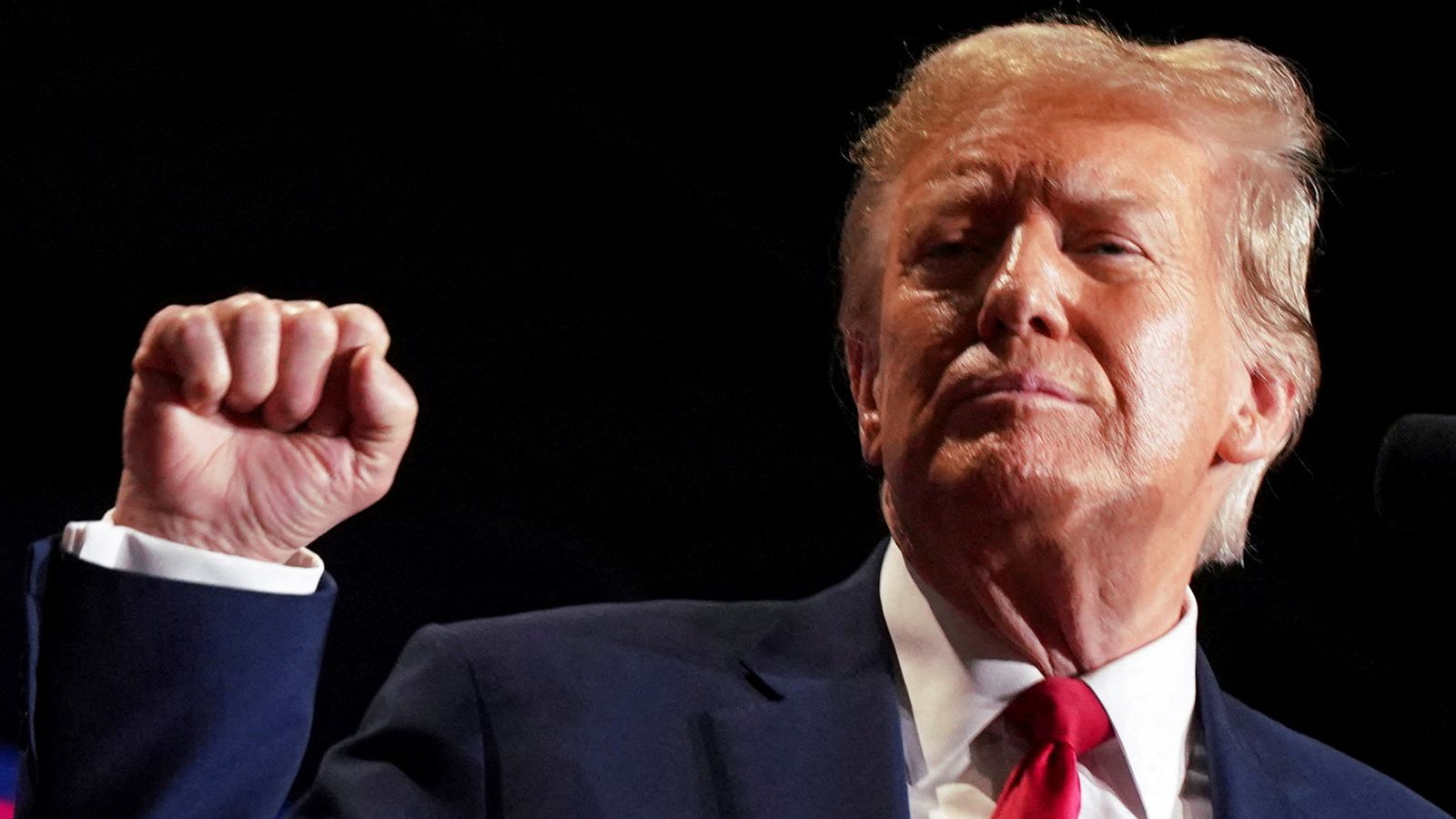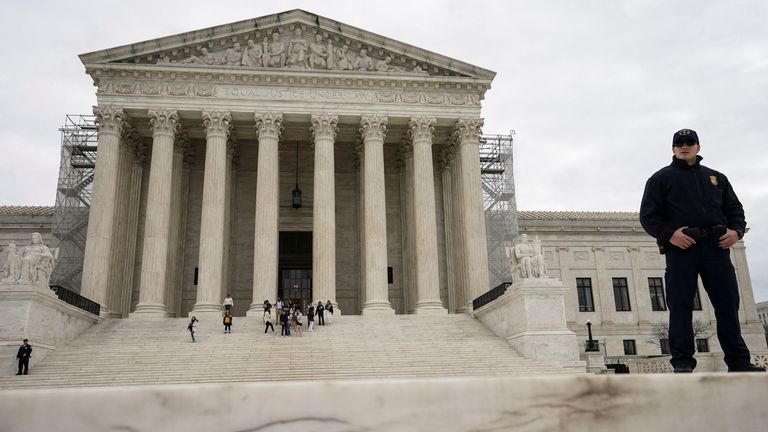The US Supreme Court has rejected Colorado state attempts to remove Donald Trump from the ballot for president.
The court ruled that states cannot keep presidential candidates from appearing on ballots without action from Congress first.
It means Trump remains on the Colorado ballot for president, and efforts to remove him from ballots in other states such as Maine and Illinois – which had been on hold pending today’s decision – will also come to an end.
Speaking after the decision was announced, Trump said: “Essentially, you cannot take somebody out of the race because an opponent would like to have it that way.
“It has nothing to do with the fact that it’s the leading candidate, whether it was the leading candidate or a candidate that was well down on the totem pole.”
He also called for presidents to have immunity from prosecution, saying: “If a president doesn’t have full immunity, you really don’t have a president because nobody that is serving in that office will have the courage to make, in many cases, what would be the right decision, or it could be the wrong decision.”
Trump is the frontrunner for the Republican nomination to challenge Democratic president Joe Biden in November’s US election.
His only remaining rival for his party’s nomination is former South Carolina governor, Nikki Haley.
The former president’s eligibility had been challenged in court by a group of six voters in Colorado – four Republicans and two independents – who portrayed him as a threat to American democracy and sought to hold him accountable for the 6 January riots.
In a bid to prevent Congress from certifying Mr Biden’s 2020 election victory, Trump supporters attacked police, broke through barricades and swarmed the Capitol.
The Colorado Supreme Court said in December Trump could not stand for election in the state because he had “engaged in insurrection or rebellion”.
The judges ruled Trump was disqualified because he had incited the 6 January riot at the Capitol building in Washington DC in an attempt to overturn his loss in the 2020 presidential election.
Read more:
The storming of the Capitol – how the violence unfolded
What is Super Tuesday – and why does it matter so much?
Nikki Haley makes history with Washington DC victory
The 14th Amendment’s Section 3 bars from office any “officer of the United States” who took an oath “to support the Constitution of the United States” and then “engaged in insurrection or rebellion against the same, or given aid or comfort to the enemies thereof”.
The Supreme Court, whose 6-3 conservative majority includes three Trump appointees, said in its unsigned opinion on Monday: “We conclude that states may disqualify persons holding or attempting to hold state office.
“But states have no power under the Constitution to enforce Section 3 with respect to federal offices, especially the presidency,” the unsigned opinion for the court stated.
The ruling came on the eve of Super Tuesday – the day in the US presidential primary cycle when the most states hold party nominating contests.









